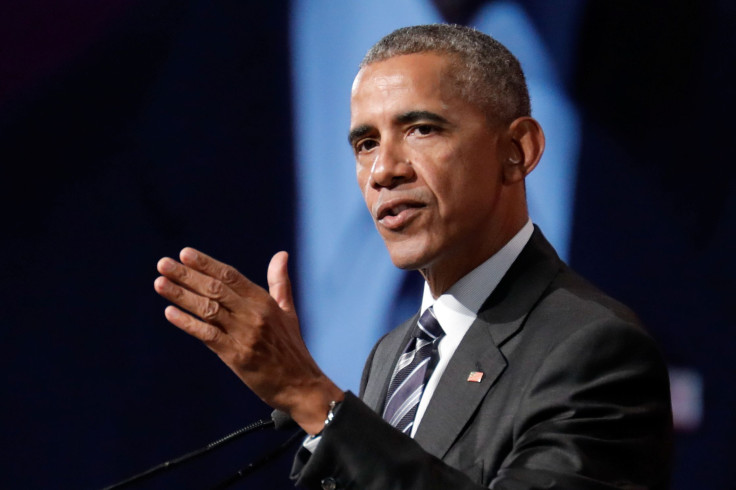Obama's Election Day Plan For Russian Hacking Included Military Option: Report

Prior to the 2016 presidential election, former President Barack Obama was forced to create a contingency plan that included possibly deploying military personnel to polling sites in response to Russian hacking efforts, according to an unclassified document attained by Time Magazine Thursday.
The 15-page plan advised that in most cases of hacking, local governments would have primary jurisdiction over the response. In the case of a “significant incident,” however, federal enforcement agents could be deployed to help maintain the integrity of the election.
“The Department of Defense may support civil authorities in response to cyberincidents based upon a request from a federal agency, and the direction of the Secretary of Defense or the President,” the plan said.
The plan prepared for contingencies ranging from violence at polling places to defending against and investigating cyberattacks and countering propaganda efforts for days after.
The scope and scale of the report also outlined how successful the Russian government had been in shaking U.S. confidence before it even happened, aided by partisanship and then presidential candidate Donald Trump’s insistence that the election would be rigged. By the time the election rolled around, Gallup polls indicated that a mere 30 percent of Americans had faith in the honesty of elections, while 69 percent did not.
The federal government began to find evidence of bolder Russian hacking as far back as 2014, according to Time Thursday. Most states experienced some kind of Russian attempts at interference throughout 2016. Federal investigators found Russian hackers attempting to change voter roll information in Illinois’ election system, and Russian government hackers also appear to be responsible for the hacking of the Democratic National Committee’s e-mails.
READ: Russian Hacking: Passwords, Emails Stolen From UK Ministers And Sold On Dark Web
Along the campaign trail, Trump insisted the Russian government was not responsible for hacking and repeated statements like one from August in which he said, “I'm afraid the election is going to be rigged.”
The tense partisan atmosphere created tensions between secretaries of state and the federal government. Homeland Security told states in August they were considering declaring elections part of the U.S. critical infrastructure, putting it under the protection of the federal government. The move was in response to how pervasive the feared Russian hacking could be, according to Time. Many states feared government overreach, hampering White House efforts to deal with the Russian threat.
The contingency plan never had to be acted on, but fear of Russian hacking is still a major concern amongst U.S. intelligence agencies.
© Copyright IBTimes 2025. All rights reserved.





















